Victoria Noe's Blog
June 19, 2020
White Writers: Sharing Memes is Not Enough
 Wire and Honey
Wire and HoneyThere have been countless discussions – in person, online, on TV – about how white people can be effective allies for people of color. These are not always easy conversations.
Last fall, I attended a one-day conference on race in the HIV community. At least 85% of the attendees and speakers were black; I was conspicuously in the minority. I’d be lying if I didn’t admit that the discussions made me a little uncomfortable at times, even a bit defensive once or twice. That’s okay. I don’t believe these should be comfortable conversations.
Aside from the #PublishingPaidMe thread on Twitter (which has been eye-opening but not surprising), what other ways can white writers be effective allies for writers of color?
Well, first, you have to be sincere. There’s a lot of talk right now that’s just that: talk. People who figure they’ll say the right things, maybe go through the motions, but as soon as the nation’s attention has shifted, feel that they’re off the hook. If you don’t want to be an ally, that’s a whole different conversation and frankly, I’m not interested in having that discussion with anyone right now.
You can start by elevating black writers. There are a lot of obvious ways to do that: buy their books, write reviews, recommend them. Ask them to guest post on your blog. But first you have to find them. They’re not hiding, so check out some of the comprehensive lists being shared online. Google it. It’s not hard.
Now, which writers? There are lots of recommendations right now for anti-racist books, for books that spotlight the black experience, particularly in the US. Start there. But here’s a tip: look for black authors in your genre. Believe it or not, black authors write romance, science fiction, horror, self-help, inspirational, sports, children’s. Black writers write all kinds of books. Don’t pigeon-hole them in a social-activist corner (unless that’s what most interests you).
Next, consider events – the online ones, too. How diverse is the speaker list? If you’re invited to participate in a panel, who are the other writers on the panel? Most of the ones I’ve been on have been lily white and mostly men. This is where the previous suggestions come in handy, because you may be in a position to recommend someone to teach a workshop, deliver a keynote or speak on a panel. But you can’t elevate writers of color in those ways if you don’t know who they are. It’s up to you to find them.
I’m currently working on the audio version of my latest book, Fag Hags, Divas and Moms: The Legacy of Straight Women in the AIDS Community. My progress was stalled when the virus lockdown started. No, I’m not narrating it myself. Two degrees in theatre are no guarantee that I can be a good narrator; stage performance and narrating are two different skills. (Plus, I’m still traumatized by my voice and speech teacher from college, and would not be surprised if he sent me notes on my pronunciation.)
Findaway Voices had already suggested a group of five possible narrators, including audio samples. After reviewing all the candidates, I then request an audition tape, where they read the opening chapter of my book. When I went back to the list to review the list, one very obvious fact jumped out at me: all the women are white.
Well, so am I. So what? I decided this was one of those opportunities to prove that I’m an ally. Because there is absolutely no reason why my narrator has to be white. After all, not all the women in my book are white. So I emailed Findaway and requested five more (not an unusual request in this stage), but this time, women of color. Within one business day, I had talented women of color to consider.
I haven’t made my decision yet. I may ask for more to consider. But I’m leaning toward a woman of color. I’m not gonna lie: I probably wouldn’t have done this three months ago. But I realized that being an ally means being deliberate, being intentional, being consistent. It’s more than sharing posts and memes on social media. At least it should be.
So that’s my example, one tiny example of how to be more of an ally. I hope you can find a lot more ways to change the conversations and enrich the writing community. Because that will benefit all of us.
#short_code_si_icon img
{width:25px;
}
.scid-2 img
{
width:25px !important;
}
Share this post





June 12, 2020
#PublishingPaidMe
 Photo: mobius/Fotolia.com
Photo: mobius/Fotolia.comI’ve been watching Twitter lately, in particular a hashtag: #PublishingPaidMe. It was begun by two black YA authors, Tochi Onyebuchi and L.L. McKinney, calling out the glaring disparities between how much black and non-black authors are paid in advances.
For those who are unfamiliar with advances, publishers pay an author a certain amount of money, which conveys their belief in the future success of that book. It is usually based not only on the book’s excellence, but the platform of the author – the assurance that they are well-known and have a built-in audience. It’s like a down-payment, not paid in full until the publication date. The author earns nothing more until the book’s sales earn back that advance. Often, that’s the only money they will ever see.
The purpose of this Twitter thread has been to “hold publishers accountable for why black authors typically don’t receive the same advances of their white peers”. It has been a very, well, passionate discussion. The contributors have included household names and authors who are not well-known. This is beyond unusual: authors are notoriously tightlipped about advances and income. What has been laid bare is what many already suspected: a straight white man with virtually no platform could earn an $800,000 advance for his debut novel, but established, respected, award-winning women of color would be lucky to earn 5% of that (no, I’m not naming names).
Well, 5% of $800,000 is $40,000, you say. That’s not bad, right? That depends, as the thread has shown. Payments are made in three installments, pre-tax, so you have to put aside money for taxes. Your agent gets 10-20%. If you write nonfiction, you have to pay a fact-checker. Suddenly, that $40,000 doesn’t look so great.
I did not set out to be an indie author. I assumed that my detailed marketing plans and well-researched manuscripts would at least get me an agent. I was wrong. “I don’t know how to market this” was the most frequent response to my queries, which led me to believe they did not read the full proposal. For my seventh book, the first not in my series, I pitched again. It was mostly an intellectual exercise. By that point the book was about to go to my editor, so I was mainly looking for feedback.
I’ve said for years that traditional publishing is called ‘traditional’ for a reason: they’re resistant to change. When I pitched that day, that idea was confirmed. My book about correcting the history of the AIDS epidemic by recounting the accomplishments of straight women in that community puzzled the agents who listened to my pitch. “Too small an audience,” one insisted. “No one outside the AIDS community would care.” But the kicker was that all four insisted I needed a celebrity to write the foreword. They believed I needed a famous man – preferably a gay man – to validate my book about women. How I managed to get through it all without laughing and/or screaming is beyond me.
So I’m definitely an indie author. I get no advances, but I do pay for everything: research trips, editing, permissions, cover design, formatting, advertising. Have I made back everything I’ve spent the past ten years? No, probably only one book has actually made a profit. Would I do anything different? Of course, though I’ve made a lot fewer mistakes than many authors. That’s because I belong to associations like Authors Guild and The Alliance of Independent Authors. And because I was lucky to make great friends in the community when I first started out.
My guess is that, with rare exceptions (like travel guides), you don’t choose a book because of its publisher. You pick a book based on recommendations from friends, from reviews and interviews, from previous exposure to that author. You probably don’t know if that book was published by a Big Five publisher or was published by the author themselves. In truth, it shouldn’t make any difference. A good book is a good book.
So I encourage you to check out your local indie bookstore. You’ll find knowledgeable staff who are passionate about books, all kinds of books. Not sure where to find one? Try Indiebound or Bookshop because there is life beyond Amazon, whether you prefer print, ebooks or audio.
Authors everywhere will thank you.
#short_code_si_icon img
{width:25px;
}
.scid-2 img
{
width:25px !important;
}
Share this post





June 5, 2020
Reflection on COVID-19 – More from Trudy James
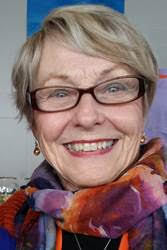 Trudy James
Trudy JamesAs I said last week, Trudy James is one of the most remarkable women in my book, Fag Hags, Divas and Moms: The Legacy of Straight Women in the AIDS Community. Her advocacy and activism – in HIV/AIDS and the death and dying communities – was recently honored by AARP Washington. She had so much to say about facing a deadly pandemic, that I decided to share more of her thoughts. I hope you find them comforting, too.
In addition to the “Speaking of Dying” film and workshops, I often give presentations, workshops, and consultations on the subjects of grief and loss. For many people this is new information. In these “Excited States of America” we have never tolerated sadness well, preferring to tell ourselves and others to “be strong, “get over it,” and “move forward.” I am observing some of that same tendency today, in our response to COVID-19.
If you have ever lost a dear one, a beloved pet, a job, your health, or a relationship, you already know about the pain of loss. You may have experienced some of the physical symptoms: fatigue, aches, or heaviness. Or the numbness, anger, disorganization, depression, regret and guilt that are all normal aspects of grief and loss. Hopefully, you learned how to respect and honor your own grief—maybe in a group, or with a trusted friend or counselor.
Or maybe you have “risen above them,” as I did when I lost my first child, or when my father took his own life. You can receive a lot of positive strokes for “being strong.” In my case, my grief was not actually felt or honored until I was learning to be a hospital chaplain—many years after the losses. If I had not learned how to admit and honor my own losses, I could not have worked so closely with AIDS patients and volunteers as I did for more than 20 years.
Now, we are collectively going through great loss in many forms: loss of precious lives—too many to absorb; loss of freedom of movement and connection; loss of jobs as we knew them; financial losses; loss of control; loss of faith in leadership; loss of our normal life. Individually and collectively, we are living in the “soup of unknowing.” We are forced to find ways to live differently, ways to cope. We are brave. We are resilient. We support each other.
And at the same time, inside myself, and in reading the news and when listening to friends, I hear and recognize many feelings that reveal grief: numbness, disorganization, fatigue, and sometimes even denial. Can this really be happening? Will we wake up and discover it was all a bad dream? Will it ever end? I hear expressions of anger and deep sadness.
Grief is a built-in, natural response to loss. It is universal and it manifests itself in unique ways for each person. What is the same for everyone is that grief doesn’t just “go away.”. It may go underground, but it wants and needs to be acknowledged. If not, it may make us physically ill; it may show up in unexpected anger or depression. The natural grief process needs attention in order to proceed toward acceptance, healing, and reintegration.
We know that individuals, groups, and countries have survived huge losses. We know that good can come from this. And we are also aware that grief is real.
How shall we deal with it now, for ourselves, in this time and place?
In coping with my own grief, when offering support as a chaplain, and in workshops, I have learned some of the remedies that help and heal; these may help you, or people you know, now. Nothing works for everyone because our losses are unique, but perhaps this list will give you permission to feel and deal with your own grief in some way.
These are the basics:
Talking.
For most people, talking to others about loss helps. Our tendency is to put on a happy face, to share only positives. Admitting our darkness is equally important. Saying how much we miss people, how much we long for what used to be how cut off we feel. In order to “talk,” we can use email, phone, Facetime, Zoom…whatever tool feels comfortable. What matters is being honest about our feelings. You may have to ask someone to listen to you without giving you advice. You can do the same for them. Remember –It is the opportunity to express loss that helps. So, if you have no one to talk with, writing your feelings in a journal works also.
Crying.
Tears are given to us for good purpose. They are natural. We’ve been conditioned by society that tears are weak and to be avoided. To allow tears to flow, we may need to listen to sad music or watch sad movies. If we can let our tears come freely—we will usually feel better.
Nature.
You already know this one, but it helps to consciously invite it into our grief. The power that comes from watching spring emerge, looking at a blue sky, the sounds of a babbling brook, even photographs of the ocean—all can remind us that we are part of something bigger. We are a part of nature, and part of the natural processes of death and rebirth.
Simple acts of kindness.
Finding some small way to help someone else, reaching out, listening to someone, asking them what is hardest for them, or what is helping them survive.
Rituals
.Grief is sometimes too deep for words. We can honor our grief through simple rituals done with intention: lighting a candle, planting a flower, reading a poem, meditating, deep breathing, sitting in silence. The intention to honor the mystery of grief with some small action comforts our hearts and souls.
May all be healed, may all be loved, may all be comforted.
This poem is my gift to those who have died and are dying of COVID-19
Thank you for being willing to make this sacrifice at this time.
Thank you for preparing a way that all of us will follow at some time.
Today, still breathing, we pray that your passage was peaceful.
We hope that you were able to say your goodbyes in your heart.
We regret that loved ones and friends could not be beside you;
We know they were with you in spirit.
Our hearts are thankful for the time you were on this earth.
Wherever you may be now, you are always present in memories.
If you are able, we ask you to send us the strength we need now.
We ask for comfort, for courage, for hope, for vision.
We long for a kinder, more equal, more compassionate future.
Help us learn from this pandemic to create a better world.
— Amen
Trudy James, a graduate of the University of Kansas and Union Theological Seminary in New York City, is a retired multifaith hospital chaplain who spent 20 years creating faith-based volunteer CareTeams for people living with HIV/AIDS—ten years in Arkansas, ten in Seattle. When she retired, she created a business called Heartwork. She has received many honors for her leadership in death and dying and grief and loss awareness. Producer of the documentary film, Speaking of Dying, she is also a speaker, workshop facilitator, trainer, retreat leader and consultant regarding issues of grief, aging, caregiving, living deeply, and dying well.
#short_code_si_icon img
{width:25px;
}
.scid-2 img
{
width:25px !important;
}
Share this post





May 29, 2020
Reflection on COVID-19 – Guest Post by Trudy James
 Trudy James
Trudy JamesIf you’ve read my book Fag Hags, Divas and Moms: The Legacy of Straight Women in the AIDS Community, you were probably surprised by the story of Trudy James, a hospital chaplain in Arkansas in the late 1980s. I know her story surprised me, too! She is now a leader in the field of death and dying, as well as grief and loss awareness. In the first of two guest blogs, Trudy shares an email she sent out on March 30, not long after the lock downs began:
I was enjoying a long-anticipated vacation in Italy with my friend, Jane. We were visiting my son and daughter-in-law who were planning to live in Umbria (mid-Italy, not the North) for five months. Having a great time. So much to enjoy in Italy: views, holy places, history, food!
Then, after five days, our trip was cut short by virus news. Flights from Italy were being cancelled. We needed to leave while we could. All four of us flew from Rome to LA to Seattle on Friday the 13th; ; We have been in self-appointed quarantine ever since. Like almost everyone is experiencing now.
The Covid-19 crisis triggers my memories of the AIDS crisis. Some of you remember those times also. I was a new hospital chaplain working in Arkansas. There was so much fear of a new, fatal disease with unknown causes. Denial, stigma, isolation, lack of a government response—sound familiar?
I worked with HIV/AIDS patients, and AIDS CareTeams, for twenty years. The lessons I learned from AIDS about death and dying, grief and loss are what led me to Speaking of Dying: the film and the workshops. Today I want to share with you a few of the lessons we learned together from AIDS—valuable lessons we seem to be learning again from the Covid-19 virus:
Expressing love and support for others overcomes fear—if not in person, then by phone or virtually.
We are all stronger than we think we are.
Listening to our own hearts, and listening deeply to one another, heals and empowers.
Passing on stories that inspire and encourage is as important as sharing facts (true facts are important also).
Laughter and humor strengthen us.
Talking about death—and planning for it—can be life-giving.
Good/purpose/altruism can emerge in the midst of tragedy.
In Speaking of Dying Workshops we use candles and poetry to help us go deeper into the mysteries surrounding the end of life—to connect us with our hearts and spirits. So I want to share with you two poems about this pandemic time. You may have already seen them. Even so, please take time to read them slowly now to yourself. Sit in silence. If you like, light a candle.
Later you may want to forward them to others. We are all going through this together—all One.
Trudy James, a graduate of the University of Kansas and Union Theological Seminary in New York City, is a retired multifaith hospital chaplain who spent 20 years creating faith-based volunteer CareTeams for people living with HIV/AIDS—ten years in Arkansas, ten in Seattle. When she retired, she created a business called Heartwork. She has received many honors for her leadership in death and dying and grief and loss awareness. Producer of the documentary film, Speaking of Dying, she is also a speaker, workshop facilitator, trainer, retreat leader and consultant regarding issues of grief, aging, caregiving, living deeply, and dying well.
#short_code_si_icon img
{width:25px;
}
.scid-2 img
{
width:25px !important;
}
Share this post





May 15, 2020
A Reflection on COVID-19 – Guest Post by Krishna Stone
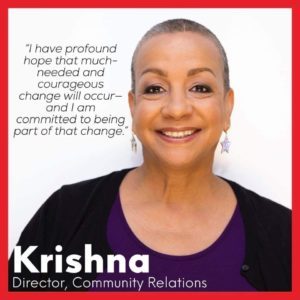 As you can tell by her photo, Krishna Stone possesses a joie de vivre that inspires everyone lucky enough to be around her. It was my pleasure to include her in Fag Hags, Divas and Moms: The Legacy of Straight Women in the AIDS Community. Though the personal losses have been many, she has found a way to honor her friends and keep fighting…while dancing.
As you can tell by her photo, Krishna Stone possesses a joie de vivre that inspires everyone lucky enough to be around her. It was my pleasure to include her in Fag Hags, Divas and Moms: The Legacy of Straight Women in the AIDS Community. Though the personal losses have been many, she has found a way to honor her friends and keep fighting…while dancing.
“It is time to dance. Who will I dance for tonight who has died of AIDS?”
During the 1980s and 90s, when I was volunteering and then becoming an employee at Gay Men Health Crisis, visiting with friends who were living with AIDS and then attending memorial services for those who had died of AIDS, dancing was a substantial coping skill.
I would go to the clubs, largely for gay men, and dance to extraordinary Disco Classics music, played by immensely gifted DJs. Before I would start on the dance-floor, I would ask myself who was I dancing for that had died of AIDS. Then I would dance for hours, while crying for my friends, singing out loud and screaming when the DJ would play a specific song—“Oh my Goddess! That’s my song!” Pure rapture and joy mixed with sorrow.
These days, there are very few opportunities to dance. I am lucky if there is a Disco Classics party maybe twice a year. When I am able to dance in a venue, I still cry because I miss my friends who died of AIDS or another illness. I also cry because I have friends who made it through the plague years of the epidemic—especially those who experienced significant loss. We are a tribe of warriors on the dance-floor and we know the music by heart. On occasion, I will play my records or listen to my cassettes and CDs of the music that remains extraordinary, which continues to provide comfort.
During this time of COVID-19, I have to work remotely, which is a first for me in 27 years at GMHC. I struggle with feeling stressed, isolated and very sad by the impact of the pandemic. I do not read the articles listing the names and faces of people who had died of COVID-19. However, I watch the news on TV once during the day, and read a handful of posts related to the pandemic on social media networks. I love the funny memes and gifs that are oftentimes hilarious.—another way to help cope.
I also think it is important to read the articles that look at the comparison between the HIV/AIDS epidemic and COVID-19 pandemic. While they are vastly different, there are similarities related to how people become activists and get involved in the fight for human rights. Our work continues.
So, let’s keep fighting and dancing.
Krishna Stone is the Director of Community Relations in the Communications Department at Gay Men’s Health Crisis (GMHC). She originally connected with GMHC in 1986 as a walker in the first annual AIDS Walk New York and then started volunteering at GMHC; in 1993, she became a staff person. Her work includes organizing community events such as rallies, candlelight vigils, non-denominational gatherings, press conferences, local/state/national conferences, dance party/fundraisers, panel discussions, trainings, and site visits for people all over the world. She coordinates interviews for media outlets, helps with social media promotion, developing public service campaigns and promotional materials. Krishna is also an ordained non-denominational minister. In 2014, she was honored by the New York City Department of Health and Mental Hygiene for “her outstanding dedication to combatting the spread of HIV.” For the past 20 years, she has been a volunteer announcer along the route of the annual NYC LGBT Pride March. In 2017, Krishna was one of the four Grand Marshals for the NYC LGBT Pride March, and received a proclamation from Governor Andrew Cuomo “in honor of her dedicated service and continuing contributions to our great State.” In 2019, she was awarded the Sam Ciccone Community Service Award by the Gay Officers Action League New York. She is the proud mother of her 25-year-old daughter, Parade.
#short_code_si_icon img
{width:25px;
}
.scid-2 img
{
width:25px !important;
}
Share this post





May 8, 2020
Reflections on COVID-19 – Guest Post by Rosa E. Martinez-Colon
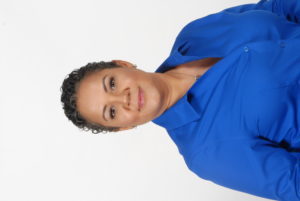 Though we both live and work in Chicago, Rosa E. Martinez-Colón and I met at the US Conference on AIDS in Washington, DC in 2015. I knew right away that her AIDS work with the Latinx community in the Humboldt Park neighborhood had to be featured in my book. Her experience right now, though, is both familiar and very different.
Though we both live and work in Chicago, Rosa E. Martinez-Colón and I met at the US Conference on AIDS in Washington, DC in 2015. I knew right away that her AIDS work with the Latinx community in the Humboldt Park neighborhood had to be featured in my book. Her experience right now, though, is both familiar and very different.
On March 15 the Governor of Puerto Rico decreed a new law, effective immediately, in response to the Covid-19 pandemic. At that time, I was wrapping up the project in Puerto Rico, where I had worked for the past year, and was getting ready to go back home to Chicago. It was not to be. Things spiraled down from that day on, and today, 48 days after, I am still in Puerto Rico, away from my daughters, my husband, my family. Sure, I am fine and healthy, but away from my loved ones, which makes this quarantine a bit harder.
Needless to say, I have had plenty of time to reminisce and it is inevitable that I think back to the AIDS pandemic. I know that comparing these two epidemics has been a hot topic; some have been very vocal about comparisons, and I respect that. In my mind, however, it is something you can’t not do. We should learn from previous experiences and not using the lessons learned from the AIDS pandemic to inform our response to the current situation would be detrimental.
Let me go back in time for a moment. In 1990 I was 23 years old and without much knowledge about HIV. I got involved with CALOR (Comprensión y Apoyo a Latinos en Oposición al Retrovirus, founded in 1990 in Chicago) and helped it grow from a support group to a full-fledged organization. Those early days were brutal: the challenges of getting correct information, the learning to protect yourself and others, the misinformation that created terror among people. Who that has been in this field for so long doesn’t remember when family members would have loved ones living with HIV/AIDS eat with different utensils, disinfecting everything they touched, and sometimes even avoiding touching them? And how about the government’s response, or lack thereof? Those were trying times.
But we learned. Almost 40 years into the pandemic, there have been great advances, and with proper medication people are living longer and healthier lives, generally speaking. We still have a lot of work to be done as minority groups continue to be disproportionately affected by HIV/AIDS. But the days of traveling from hospitals to funeral homes are long gone.
Fast forward to 2020 and the Covid-19 pandemic. Inadequate government response has resulted in the death of too many people already. Misinformation is abundant which contributes to an increase in people’s fears. There are no medications that can be used to combat Covid-19, and some of the ones that were being considered were determined to be potentially toxic. Minorities are being disproportionately impacted by this pandemic. In so many ways, some things have not changed.
What has changed arouses mixed emotions in me. The social distancing is awful. The inability to hug those we love, the constant fear of being exposed to coronavirus can take a toll on you. The stress that going out to get food and other essential products creates in me (and I am certain in many other people) is exhausting. Whereas before one would not think twice about going out for a grocery run, now an outing is a whole production that leaves me mentally and physically drained.
And then I fear for my loved ones. My sister, for example, who had SARS back in 2003 and has other underlying health conditions that make her more susceptible to being infected, is still working in Chicago, and her employer has not taken definitive measures to protect its employees. My friend who is HIV positive and is still working. She has not disclosed her status to her employer because she fears she may lose her job. Day in and day out she goes to work and prays that she is not exposed to Covid-19. Mind you, neither one of them are “essential workers” which makes their being exposed by their employers even more ridiculous.
Back in the 90s, in the midst of the HIV/AIDS pandemic, I never hesitated to hug my friends and loved ones. Every Saturday in our support groups, I loved welcoming them and hugged and kissed them, anticipating an evening where we would cry hard but also laugh just as hard. Today, it has been 48 days since I last hugged someone. And I miss that. I can’t wait to be able to do it again; to be able to see family and friends and embrace them in a tight hug and kiss them and tell them how much I love them. For now, I have to make do with Zoom, WhatsApp or FaceTime video calls. I have to send virtual hugs and kisses. But there will be a time when we will be able to do that in person again.
And I hope that we are better prepared for the next pandemic. I hope we will look back at the HIV/AIDS and Covid-19 pandemics and say “it was hard; it was heartbreaking, but we have learned and now we can respond better.”
Let not all these deaths be in vain.
A native of Arecibo, Puerto Rico, Rosa is a founding member of C.A.L.O.R. (Comprensión y Apoyo a Latinos en Oposición al Retrovirus), a grassroots effort for Latinos impacted by HIV in Chicago. For 30 years, Rosa has continued her activism in the social services field. Most recently, through her company Nativa Strategies and Solutions, LLC, Rosa directed a project in Puerto Rico focused on providing trauma-informed services to children and adolescents that suffered trauma as a result of Hurricane María.
While in Puerto Rico, Rosa has maintained a close relationship with Ministerio en Jehová Serán Provistos and Casa Ismael, two AIDS Service Organizations, for which she has served as Board Member and Consultant.
Rosa holds a Master of Science in Public Service Management from DePaul University, and a Bachelor’s Degree in Organizational Management from North Park University. She is currently pursuing certification as a Manager of Quality/Organizational Excellence.
#short_code_si_icon img
{width:25px;
}
.scid-2 img
{
width:25px !important;
}
Share this post





May 1, 2020
Reflections on COVID-19 – Guest Post by Nancy Duncan
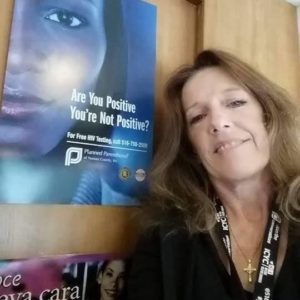
Another woman in my book, Nancy Duncan, has been living with HIV for going on 35 years, working and volunteering in the HIV field for 22 years. She’s a New York State Certified peer worker and has been doing HIV test counseling for 13 years with Planned Parenthood of Greater New York. Nancy also works at the Center for AIDS Research and Treatment at Northwell, where she produces a monthly newsletter and facilitates a medication adherence group. In addition, she volunteers on the Nassau/Suffolk HIV Health Services and is involved in many other endeavors in her community to stop HIV and end the epidemic.
As a woman who has lived through and survived the AIDS epidemic, it seems what’s going on now with the COVID-19 pandemic has brought back some eerie feelings I’d experienced in the past but it’s not quite the same. My immune system is stable, but I do fear getting this just like most people. I’m trying my best to be as safe as I can be, but I thought I was being safe in 1985 when I contracted HIV.
It’s hard to believe what’s happening now because this new virus is much more transmittable and so much is still unknown just like when HIV first emerged into the population almost 40 years ago. I fought so hard to stay alive back then and now I feel like I’m fighting again against an invisible enemy trying to kill everyone.
The government has taken steps to reduce the transmission by social distancing: asking people to stay home, to wear masks. They’ve acted fast on it, though not fast enough in my opinion. The response here is very different than the government’s very slow reaction to an unknown disease that was killing gay people and intravenous drug users beginning in 1981. HIV/AIDS was pretty much ignored by the president at the time and wasn’t given the attention it needed and deserved, hence it took years to find a treatment that actually worked to keep it under control. Way too many people died in the interim, which is quite sad to say the least. There is a lot of money to be made in the HIV industry, people are still contracting it and it seems as though there is no end in sight.
I do know that unlike the response to HIV/AIDS, our government and people in general are not ignoring COVID-19. This time it was clear from the beginning that no one is immune, no matter what their lifestyle or privilege may be. That is the big difference here. There are some states that still have HIV criminalization laws for people who knowingly spread it. I question why there aren’t any legal consequences for people who are not obeying these new rules of social distancing – wearing masks, staying home – and are out there possibly putting others at risk for a life-threatening virus. It just doesn’t seem fair!
Nobody knows yet what the outcome will be or when this will be over. I see they are working much faster for more testing and possibly a vaccine for this than they ever did for HIV. I hope this all ends soon because it seems like a very bad dream.
I miss seeing my son, family and friends. I have been fighting to keep HIV from killing me for almost 35 years now and I hope to be able to say one day soon that I survived another plague and am even stronger for it.
#short_code_si_icon img
{width:25px;
}
.scid-2 img
{
width:25px !important;
}
Share this post





April 24, 2020
Reflections on COVID-19 – Guest Post by Kathleen Pooler
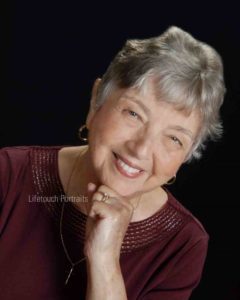 This week I turned my blog over to one of the women in my book (Fag Hags, Divas and Moms: The Legacy of Straight Women in the AIDS Community). Kathleen Pooler worked as a emergency room nurse in upstate New York at the height of the AIDS epidemic. Like many of us, that experience influences her response to the current pandemic.
This week I turned my blog over to one of the women in my book (Fag Hags, Divas and Moms: The Legacy of Straight Women in the AIDS Community). Kathleen Pooler worked as a emergency room nurse in upstate New York at the height of the AIDS epidemic. Like many of us, that experience influences her response to the current pandemic.
As I write this post, I am sitting in a wheelchair in the rehab facility where I have been for two months to heal from a femur fracture sustained after a fall. I have plenty of idle time to immerse myself in the constant coverage of our current pandemic and reflect on what it all means.
I’m a retired nurse who lived through the AIDS epidemic of the 80s and remember the fear of dealing with an invisible enemy. It was soon discovered that AIDS was hitting the gay community the most. This fact alone added another layer of challenge due to homophobia and an entire community of mostly men were forced to die isolated and alone. This still makes my heart feel heavy when I think about how inhumane this was.
The fact that my own cousin Bob died from AIDS brings it closer to home. He felt compelled to tell his parents and sister that he had lung cancer. About a month before he died, we were at a family gathering in Connecticut when he asked me to go for a walk with him. As we walked through the lush woods surrounding our aunt’s home, he began sharing a life review, especially his relationship with his father. I felt like he was saying goodbye. But I found myself at a loss for words, though I hope that my presence helped him know he was not alone.
Thankfully, over the years, AIDS has garnered the attention it deserves though more work is needed. Life-prolonging drugs have been developed to treat symptoms and provide hope that victims can experience an improved quality of life. I was a practicing nurse in the emergency room at the time and felt I could do my part to treat each patient with respect and dignity. I railed against the homophobia that was prevalent in those days.
With the current COVID-19 pandemic, there is that same level of fear in dealing with an invisible enemy and I find myself thinking about what I can do—I’m a nurse at heart so I still feel that lingering need to volunteer my services. Of course, that is out of the question due of my current health status: I’m still learning how to walk again. But I feel such an affinity to these front line heroes who are risking their own lives to save their patients. I know the feeling of wanting to make a positive difference in the lives of people who are suffering.
Right now we don’t know the outcome. Clearly, we are not out of danger. Some people are not following the recommendations to stay at home and not congregate in groups as our health care community and medical experts are begging everybody to follow the guidelines.
The story is still evolving with many options of the horizon—drugs, convalescent plasma from patient who have survived, maybe drug combinations. We don’t know what this virus will do—swing back around in a mutated form?
Like the AIDS epidemic, this virus will be around for a long time and will spawn new technologies and treatments. We will learn from what we have been through. It’s even possible that a lot of good will come out of this– an increased gratitude for the little things that matter, a slowing down of our frenetic pace.
Whatever our uncertain future holds, I do know one thing: I will never stop being a nurse and wanting to make a positive difference to those suffering. I will just have to think of creative ways to minister which for now is through my writing.
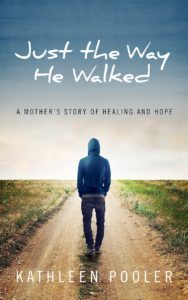 Kathleen Pooler is a retired family nurse practitioner and author of the memoir Ever Faithful to His Lead: My Journey Away From Emotional Abuse, published in 2014, and is sequel, Just the Way He Walked: A Mother’s Story of Healing and Hope, published in 2019. She writes about how she tapped into her faith in God during her biggest obstacles and disappointments to transform and heal from life’s greatest challenges. She believes that every little bit of hope matters and that we are all strengthened and enlightened when sharing our stories.
Kathleen Pooler is a retired family nurse practitioner and author of the memoir Ever Faithful to His Lead: My Journey Away From Emotional Abuse, published in 2014, and is sequel, Just the Way He Walked: A Mother’s Story of Healing and Hope, published in 2019. She writes about how she tapped into her faith in God during her biggest obstacles and disappointments to transform and heal from life’s greatest challenges. She believes that every little bit of hope matters and that we are all strengthened and enlightened when sharing our stories.
She lives with her husband Wayne in eastern New York and blogs weekly at Memoir Writer’s Journey, krpooler.com.
She can also be found on:
#short_code_si_icon img
{width:25px;
}
.scid-2 img
{
width:25px !important;
}
Share this post





April 17, 2020
Passing on the Lessons of the AIDS Epidemic
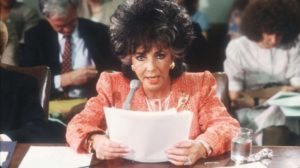 Elizabeth Taylor, testifying before Congress
Elizabeth Taylor, testifying before CongressWhen I was writing Fag Hags, Divas and Moms: The Legacy of Straight Women in the AIDS Community, I sometimes heard the voices of the women whose stories I was sharing. It was more of a feeling that they were in the room, reading over my shoulder. I’d had something very specific in mind when I began, but that idea changed, in large part because these women guided me. They made it a much better book.
Many of the women are no longer alive, so they don’t have to face another worldwide pandemic. But I realized that they and the ones still with us have a lot to say.
Dr. Molly Cooke, on facing down fears:
“I was quite visibly pregnant, and I was walking into the (intensive care unit to visit an AIDS patient) when one of the residents, a male resident, said, “Are you really sure you want to go in that room?” And I said, “What do you mean?” I had to stop and think before I understood what he was saying, and then I said, “Of course I do.”
Rita Moreno on compassion:
“The press showed up and exclaimed, ‘Why are you doing this?’ The implication being that this could be bad publicity. I answered. ‘Why wouldn’t I?’
Nora Burns on grief:
“I’ve thought long and hard how I could transform this aching sadness and longing for my friend David into a tribute to him, to our friendship, to our past. Then I recalled a note he once wrote me: it ended with ‘We have great subject matter for a best seller, shall we make it a collaboration?’ I suddenly knew how to honor David’s memory: By recounting the wild saga of two kids caught up in the sexy swirl of a never-ending party. The world has changed. So have I. But David remains the same in my memory. It’s that David I memorialize.”
Jennifer Miller on love:
“Underneath my anguish and pain from watching my brother’s health deteriorate, dealing with my anxiety over his precarious health, and watching him struggle to fulfill his dreams and goals…Tad wants to feel he’s making a difference, an impact. I want him to know that in my life, he has.”
Ruth Brinker on getting involved:
“I didn’t think I was doing anything special. I did what anyone would have done under those circumstances.”
Elizabeth Taylor, on taking action:
“I ask here and now for the national leadership that is necessary to fully appropriate this bill because I will continue to come and ask for it again and again and again until this is done, and I will not be silenced, and I will not give up and I will not be ignored.”
Dr. Michael Gottlieb on why Elizabeth Taylor was the right woman at the right time to fill a leadership vacuum:
“Someone in a leadership position – a president or first lady – could have told the country: Do the right thing. And the country would have listened. But no one in power rose to the moral occasion…Elizabeth was perfect for the role. And I think she knew that.”
These quotes are from a few of the women in my book, but they’re typical of thousands of others who have spent decades in the HIV/AIDS community. Women who are now making a difference in the COVID-19 community: volunteering, researching, at times risking their lives to work on the front lines.
They’re out there right now, channeling the passion that has made a difference in the HIV/AIDS community for almost forty years. They feel the unsettling familiarity of facing an unknown enemy. And like me, all those years ago, they don’t want to look back and know they did nothing.
Look for them. They’re out there: identifying needs, getting the work done and not giving a damn about excuses.
Listen to them. They speak with the authority of women who changed the course of HIV/AIDS and are ready to do it again for COVID-19.
This is life and death – again.
#short_code_si_icon img
{width:25px;
}
.scid-2 img
{
width:25px !important;
}
Share this post





April 10, 2020
My Second Pandemic – Part 2
 winghill.com
winghill.comWhen I wrote my latest blog post I hoped it would be the only time I wrote about COVID-19. I certainly did not want to write anymore about how this virus triggered painful memories of the early days of the AIDS epidemic.
I was grateful that the response to that post was immediate and positive. I heard from other members of the HIV/AIDS community who were in a similar place. Our conversations, mostly on Facebook, were emotional and oddly uplifting: we’d discovered a new connection. I figured I said my piece and I was done.
In the past couple of weeks, articles have popped up on various websites. Most have been written by long-term survivors in the HIV/AIDS community, describing their own, deeply personal responses; others were the subjects of interviews conducted by reporters. Every experience was different, but with enough similarities to make them relatable. It didn’t take long to realize that all were written (with one exception) by/about white gay men, some of whom are dear friends. It felt familiar, but not in a good way.
If you ask someone what AIDS meant in the 1980s, they will most likely talk about gay men. Although it was called GRID for a while – gay-related immune deficiency – it wasn’t just about gay men. Viruses may mutate over time, but they don’t discriminate. Gay, straight, bisexual, transgender, newborns to the elderly were all at risk. Yes, gay men bore the brunt of it for years, but even within that group, black and brown men were disproportionately affected and often invisible. Women were afterthoughts in many conversation about HIV/AIDS: not just afterthoughts, but sometimes deliberately excluded. Almost forty years into that epidemic, white gay men are still often assumed to be the face of the epidemic.
That’s when I realized I was not done.
I started thinking about the women I interviewed for my book, the straight women who, over the years, were vital to many battles and leaders in community-building, advocacy, legislation and awareness. I knew I was not the only straight, female long-term survivor who was having issues dealing with this new virus.
I joined a diverse group of long-term survivors who are writing about what they’re going through now. I reached out to several of the women in my book, asking if they’d like to submit a guest post for this blog. It’s critically important for people who survived those early years to find safe places to share their grief and fears surrounding COVID-19. Their posts will begin appearing the week of April 22.
And, it turns out, other women in the book, women who are no longer with us, also have a lot to say about this pandemic. I often heard their voices when I was researching and writing the book, and I hear them again. If they were alive now, they’d be vocal and passionate and determined to do whatever they can to defeat this virus. They have a lot to say, so tune in.
In my next post, I’ll let them do the talking.
#short_code_si_icon img
{width:25px;
}
.scid-2 img
{
width:25px !important;
}
Share this post








